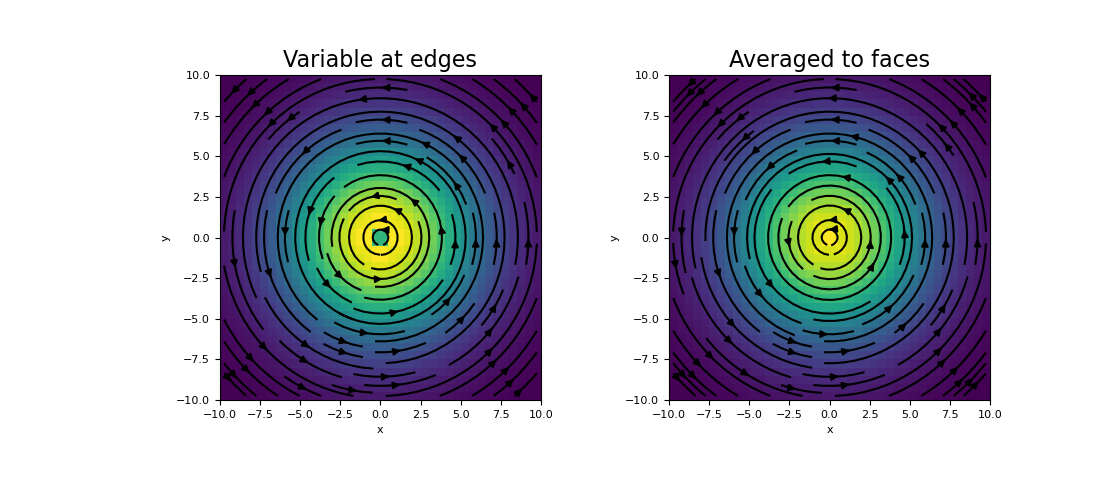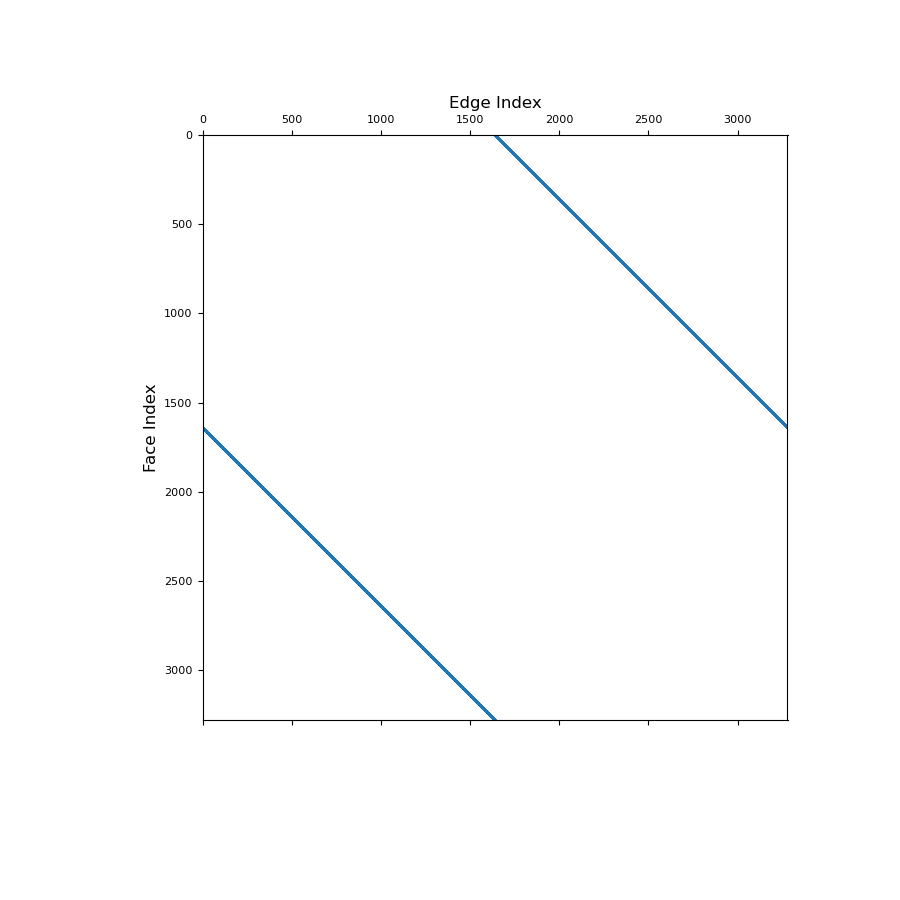discretize.operators.InnerProducts.average_edge_to_face#
- property InnerProducts.average_edge_to_face#
Averaging operator from edges to faces.
This property constructs the averaging operator that maps uantities from edges to faces. This averaging operators is used when a discrete quantity defined on mesh edges must be approximated at faces. The operation is implemented as a matrix vector product, i.e.:
u_f = Aef @ u_e
Once constructed, the operator is stored permanently as a property of the mesh.
- Returns:
- (
n_faces,n_edges)scipy.sparse.csr_matrix The averaging operator from edges to faces.
- (
Notes
Let \(\mathbf{u_e}\) be the discrete representation of aquantity whose that is defined on the edges. average_edge_to_face constructs a discrete linear operator \(\mathbf{A_{ef}}\) that projects \(\mathbf{u_e}\) to its corresponding face, i.e.:
\[\mathbf{u_f} = \mathbf{A_{ef}} \, \mathbf{u_e}\]where \(\mathbf{u_f}\) is a quantity defined on the respective faces.
Examples
Here we compute the values of a vector function discretized to the edges. We then create an averaging operator to approximate the function on the faces.
We start by importing the necessary packages and defining a mesh.
>>> from discretize import TensorMesh >>> import numpy as np >>> import matplotlib.pyplot as plt >>> h = 0.5 * np.ones(40) >>> mesh = TensorMesh([h, h], x0="CC")
Create a discrete vector on mesh edges
>>> edges = mesh.edges >>> u_ex = -(edges[:, 1] / np.sqrt(np.sum(edges ** 2, axis=1))) * np.exp( ... -(edges[:, 0] ** 2 + edges[:, 1] ** 2) / 6 ** 2 ... ) >>> u_ey = (edges[:, 0] / np.sqrt(np.sum(edges ** 2, axis=1))) * np.exp( ... -(edges[:, 0] ** 2 + edges[:, 1] ** 2) / 6 ** 2 ... ) >>> u_e = np.c_[u_ex, u_ey]
Next, we construct the averaging operator and apply it to the discrete vector quantity to approximate the value at the faces.
>>> Aef = mesh.average_edge_to_face >>> u_f = Aef @ u_e
Plot the results,
>>> fig = plt.figure(figsize=(11, 5)) >>> ax1 = fig.add_subplot(121) >>> proj_ue = mesh.project_edge_vector(u_e) >>> mesh.plot_image(proj_ue, ax=ax1, v_type="E", view='vec') >>> ax1.set_title("Variable at edges", fontsize=16) >>> ax2 = fig.add_subplot(122) >>> proj_uf = mesh.project_face_vector(u_f) >>> mesh.plot_image(proj_uf, ax=ax2, v_type="F", view='vec') >>> ax2.set_title("Averaged to faces", fontsize=16) >>> plt.show()
(
Source code,png,pdf)
Below, we show a spy plot illustrating the sparsity and mapping of the operator
>>> fig = plt.figure(figsize=(9, 9)) >>> ax1 = fig.add_subplot(111) >>> ax1.spy(Aef, ms=1) >>> ax1.set_title("Edge Index", fontsize=12, pad=5) >>> ax1.set_ylabel("Face Index", fontsize=12) >>> plt.show()

